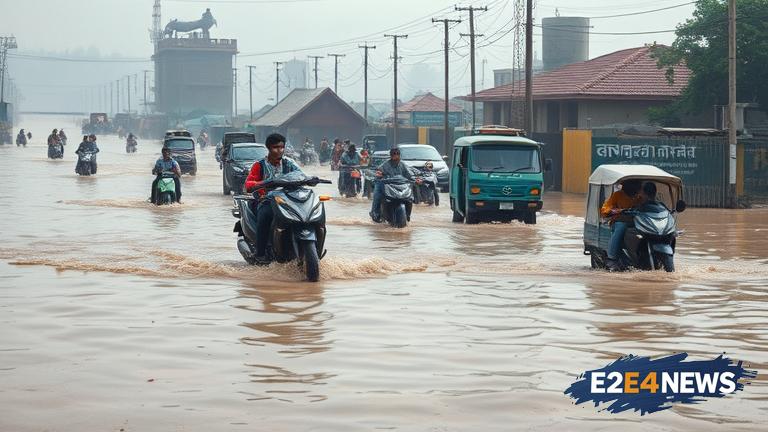A severe flood warning issued by India has prompted mass evacuations in Pakistan, with thousands of people being relocated to safer areas. The warning, which was issued due to high water levels in the Chenab and Jhelum rivers, has led to a major emergency response in Pakistan. The Pakistani government has set up relief camps and is providing food, shelter, and medical aid to those affected by the floods. The floods are expected to worsen in the coming days, with more rain predicted in the region. The Indian government has warned that the water levels in the Chenab and Jhelum rivers are expected to rise further, which could lead to more flooding in Pakistan. The Pakistani authorities are working to evacuate people from low-lying areas and are urging others to move to higher ground. The floods have already caused widespread damage, with homes, crops, and infrastructure being destroyed. The Pakistani military is also involved in the relief efforts, with troops being deployed to assist with evacuations and provide aid to those affected. The United Nations has also offered to provide assistance to Pakistan, with a team of experts being sent to the country to help with the relief efforts. The floods are a major concern for Pakistan, which is still recovering from previous floods that occurred in 2010 and 2014. The country is prone to flooding due to its location in a region with high rainfall and its geography, with many rivers flowing through the country. The Pakistani government has been criticized in the past for its response to flooding, with many people feeling that more could be done to prevent and prepare for such disasters. The current flooding is expected to have a major impact on the country’s economy, with many industries, including agriculture and manufacturing, being affected. The floods are also expected to have a significant impact on the country’s infrastructure, with many roads, bridges, and buildings being damaged or destroyed. The Pakistani authorities are working to restore power and communication services, which have been disrupted in many areas. The floods have also raised concerns about the spread of waterborne diseases, with many people at risk of contracting illnesses such as cholera and diarrhea. The Pakistani government has set up medical camps and is providing vaccinations to those affected by the floods. The international community is also providing assistance, with many countries offering aid and support to Pakistan. The floods are a major humanitarian crisis, with thousands of people in need of assistance. The Pakistani government and international community are working together to respond to the crisis and provide aid to those affected. The situation is being closely monitored, with updates being provided regularly. The floods are a reminder of the importance of disaster preparedness and the need for countries to work together to respond to such crises.
